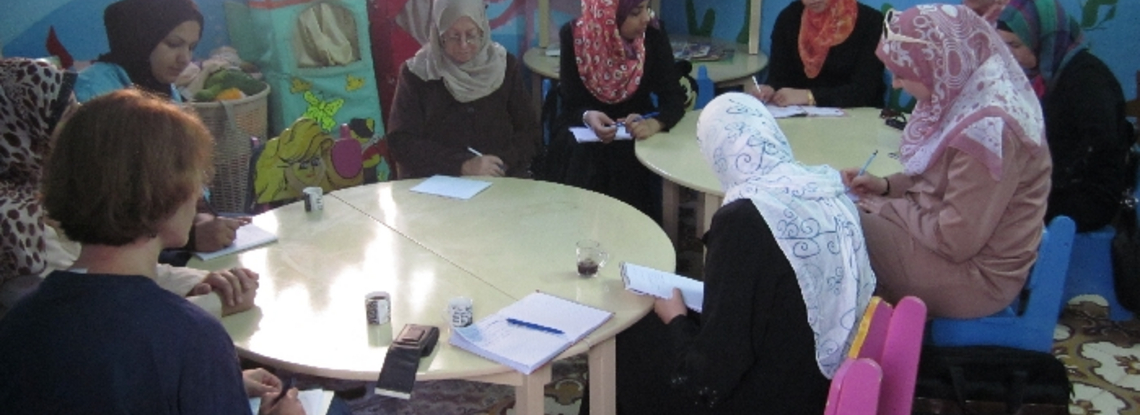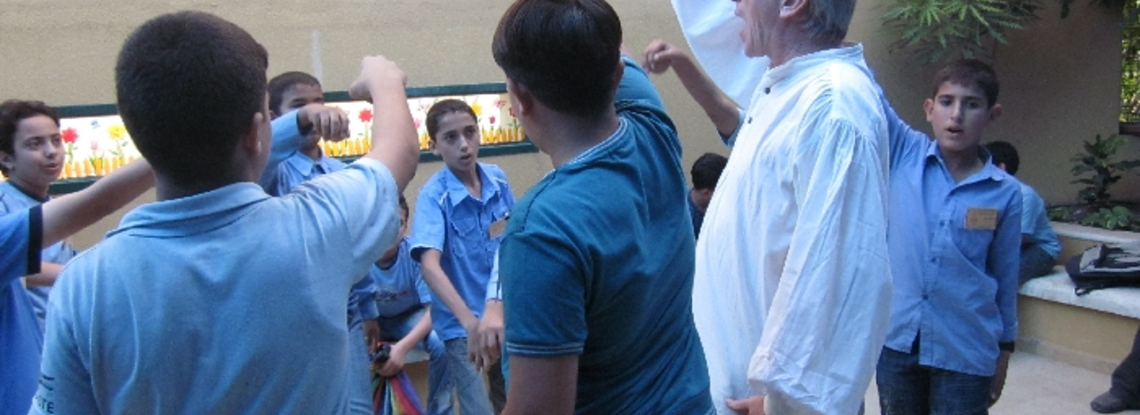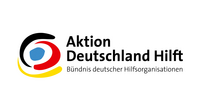Gaza October 2010


Rays of Hope in the Ruins of Gaza
The trauma-pedagogical mission of the “Friends” from October 23rd to November 6th, 2010 in the Gaza Strip
The joy of the reunion in the child protection centre set-up by the “Friends” in Al-Zeitoun, a suburb of Gaza-City was great. The continuous work of the “Friends” in the crisis region and the regular return trips create a trusting relationship between the children and the German team members. In a region, in which the rattle of machine guns is a part of daily life, the feeling of not being left alone is crucial for the stabilisation of the affected persons. War is created by humans. The building-up of the affect persons’ trust in fellow human beings is therefore an important aspect of the trauma-pedagogical work after armed conflicts. .
In contrast to the “Friends’” July mission in Gaza, the focus in autumn was the training of pedagogical multipliers as well as parental advising. Of course the team continued to work directly with children and adolescents on site, but this took place in order to support the trainings by offering demonstrations of the methods introduced there.
The emergency team of the “Friends” worked at four institutions during their two-week long intervention: the pedagogical carers of the child protection centre in Al Zeitoun, the children and professionals at the Al-Qattan Center for the Child, the kindergarten at Al-Qattan as well as the Atfaluna School for the Deaf in Gaza-City.
In the child protection centre of the “Friends” very loving and respectful interactions between children and carers prevail. These interactions have been further developed in the last week. In order to make this development possible, the local professionals require a larger repertoire of methods. They also expressed the wish to rent another room, so that their work could be even more effectively designed. The introduction to wet-in-wet painting and the methods of child discussion took-up a large part of the training. A jointly organised parent evening made the importance of contact to the children’s parents clear to the carers.
For future success, the expansion of work with parents is important in two respects: on the one hand, the parents should develop a deep understanding for the often difficult behaviour of their children. On the other hand, parents receive psychosocial support through artistic offerings and movement elements. One mustn’t forget that the parents also suffer from the effects of the war and prolonged blockades. They too must be supported in processing their experiences.
In Al-Qattan for the Child, the cooperation partner of the “Friends” in Gaza, training was offered for teachers and pedagogues. At the training, the mornings were filled with lectures about child development in order to establish a theoretical foundation. Afterwards, workshops about the topics kindergarten, experiential pedagogy, eurhythmy, painting and sculpting, and rhythm were offered, in which the local professionals participated keenly.
The kindergartens in Gaza are stuck in a dilemma. On one hand, they are not under the authority of the Ministry of Education and therefore have no set curriculum. On the other hand, it is expected of children starting school that they can read, write, and do basic arithmetic. Their acceptance to school hinges on these early acquired skills. This situation poses a challenge to kindergartens, which must teach children, sometimes as early as three years of age, writing and reading in the Arabic and English alphabet. Against this backdrop, the pressure from parents on kindergarten teachers is high. They demand homework and the observable success of their children.
In order to counter this development in a child-friendly way, the Al-Qattan Center is planning a restructuring of the curriculum at (at first) six kindergartens in the next two years. In this context, a team from the “Friends” introduced the content-related and methodical structure of Waldorf kindergartens, for example the spatial structure and design. Methods and games were explained individually with the aid of practical implementation and the effect and purpose of these games were discussed in detail.
The expectations for the education of kindergarten children will likely never change. But it is possible to integrate playful methods in certain areas, so that learning can take place on a less intellectual and much more emotional level.
At the Atfaluna School for the Deaf in Gaza-City experiential pedagogical and artistic activities were offered to the children over three days.
Children are the future of a country. Accompanying children on their way in an age appropriate manner and supportively standing by their side in a permanently threatening situation is very meaningful for preventing violence. The joy of the children, with which they go into the camp every day, the way they speak to their carers as well as the reports of parents about their children’s positive development are testimonies to the success of the work in the Child Friendly Space. The specialised further training of those, who daily ensure the children’s well-being in Gaza, will be continued in February 2011 with support from the German Federal Foreign Office.
An eleven-person trauma pedagogy team from the Friends of Waldorf Education – Emergency Pedagogy department carried out their second mission in Gaza from October 23rd to November 6th 2010, supported by the German Federal Foreign office.
The trauma pedagogy team of the “Friends” consisted of: Kristina Manz (mission direction), Lukas Mall (acting mission lead and direction of the pedagogical-therapeutic team), Christiaan Liedorp (Waldorf pedagogue), Hans-Joachim Sennock (Waldorf pedagogue), Monika Görzel-Straube (Waldorf pedagogue), Annekatrin Vogler (experiential pedagogy), Friedgard Kniebe (early childhood pedagogy), Heike Böhret (early childhood pedagogue), Pia Büchi (doctor), Bernhard Merzenich (eurhythmist), Kristian Sähle Ario (art therapist), Katrin Sauerland (art therapist)


